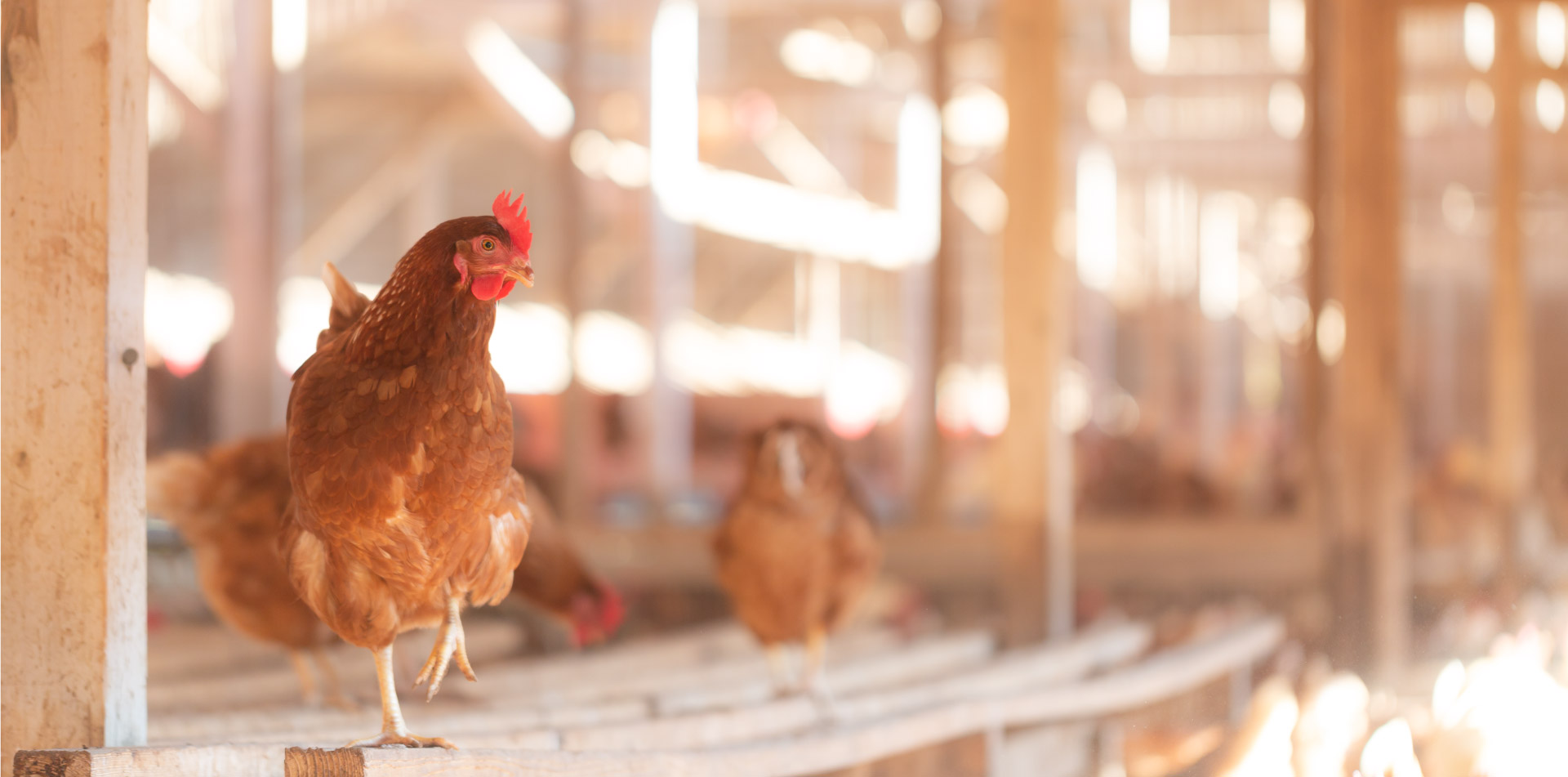

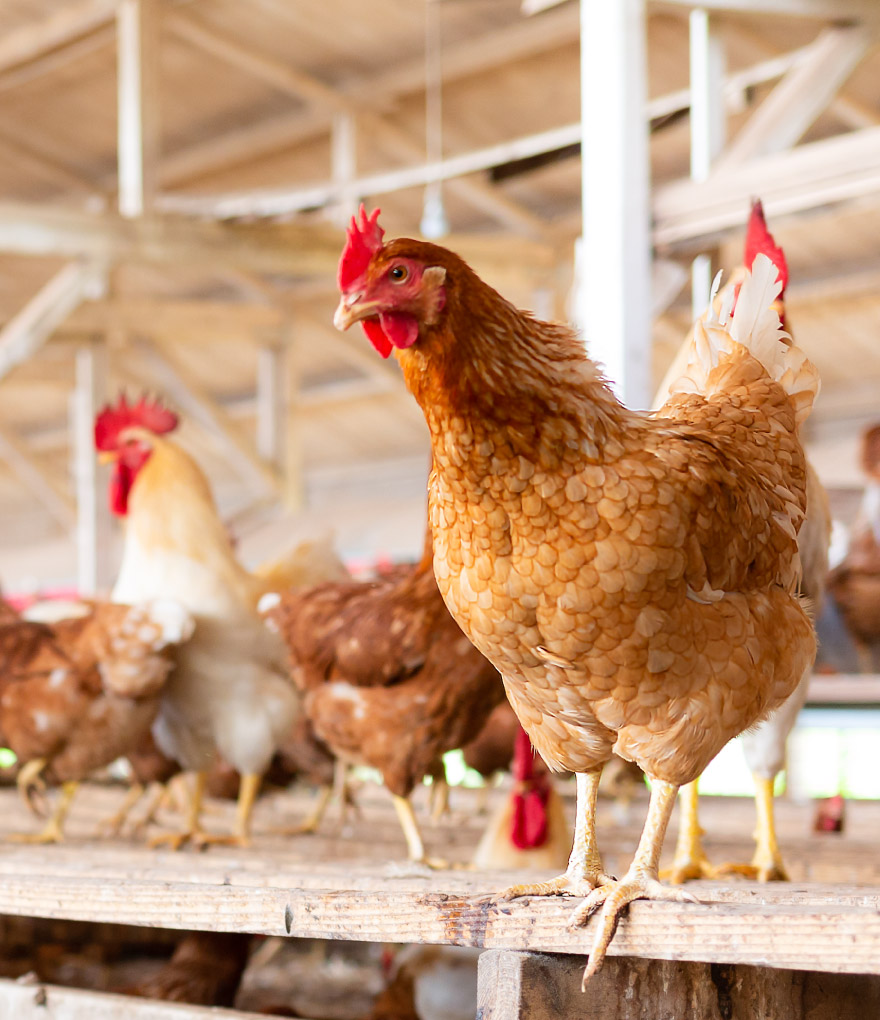
Healthy Hens Lay Quality Eggs
We know safe and quality eggs only come from healthy hens living in a good environment.
Our farm is committed to careful preparation of everything surrounding our hens to ensure we raise healthy hens.
Commitment to the Health of our Hens
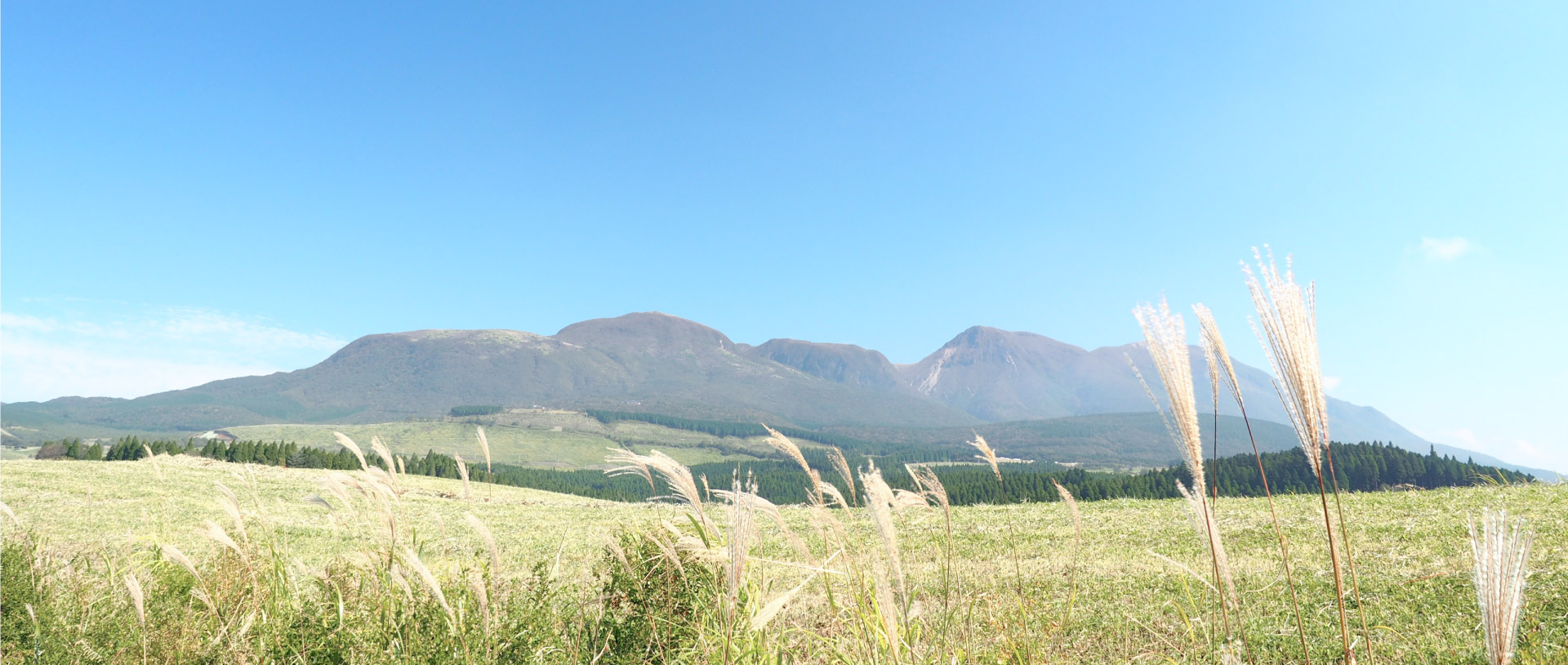
Beautiful and Abundant Nature
Our farm is situated at an elevation of 700 meters near the Aso-Kuju National Park.
Our hens benefit from abundant natural resources and from the variety of climates throughout the seasons.
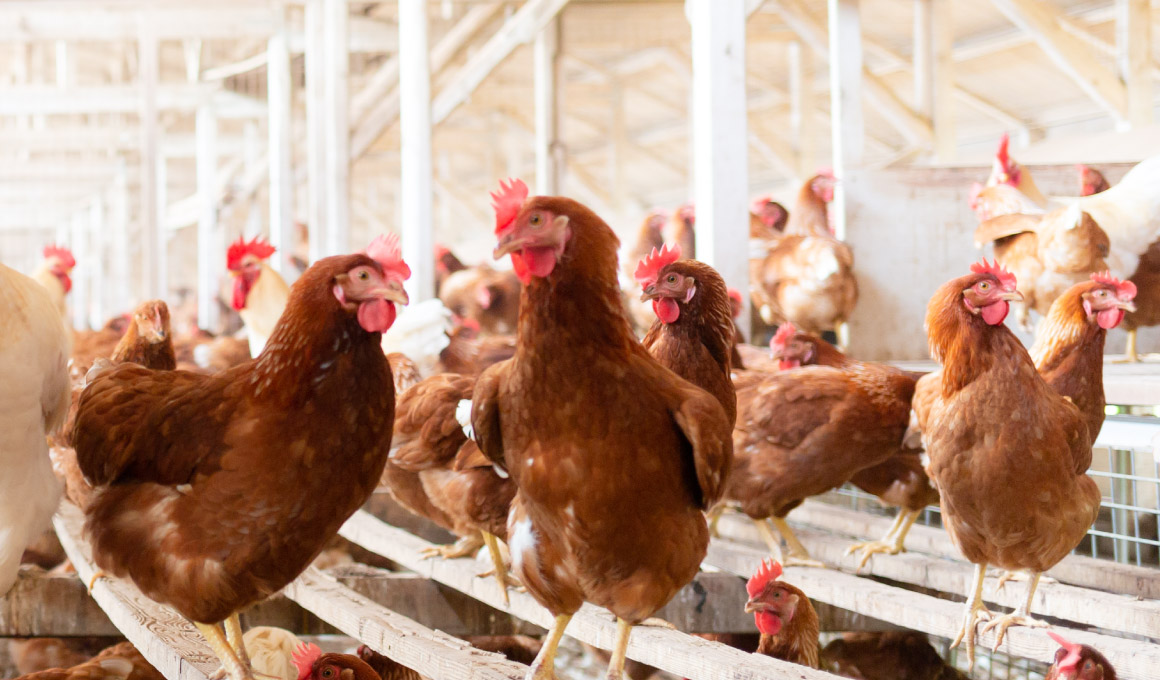
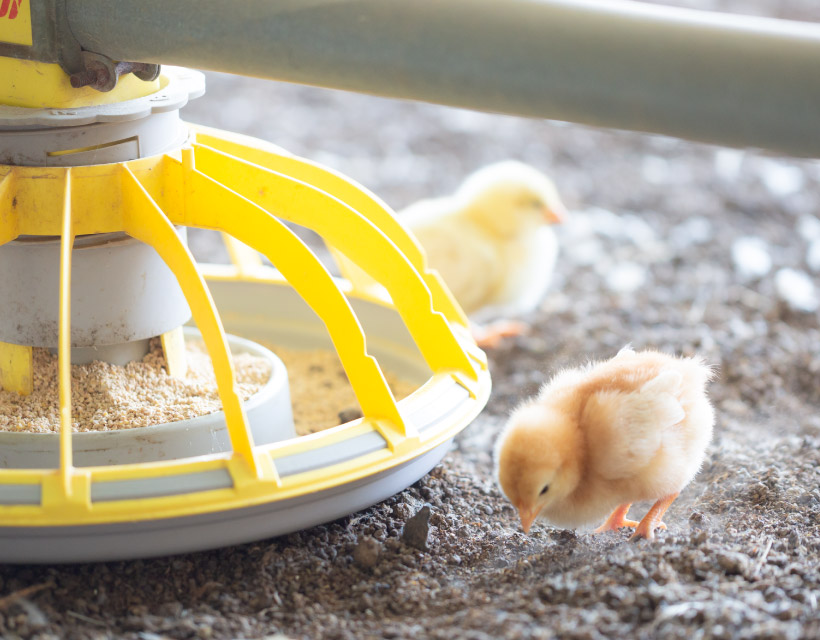
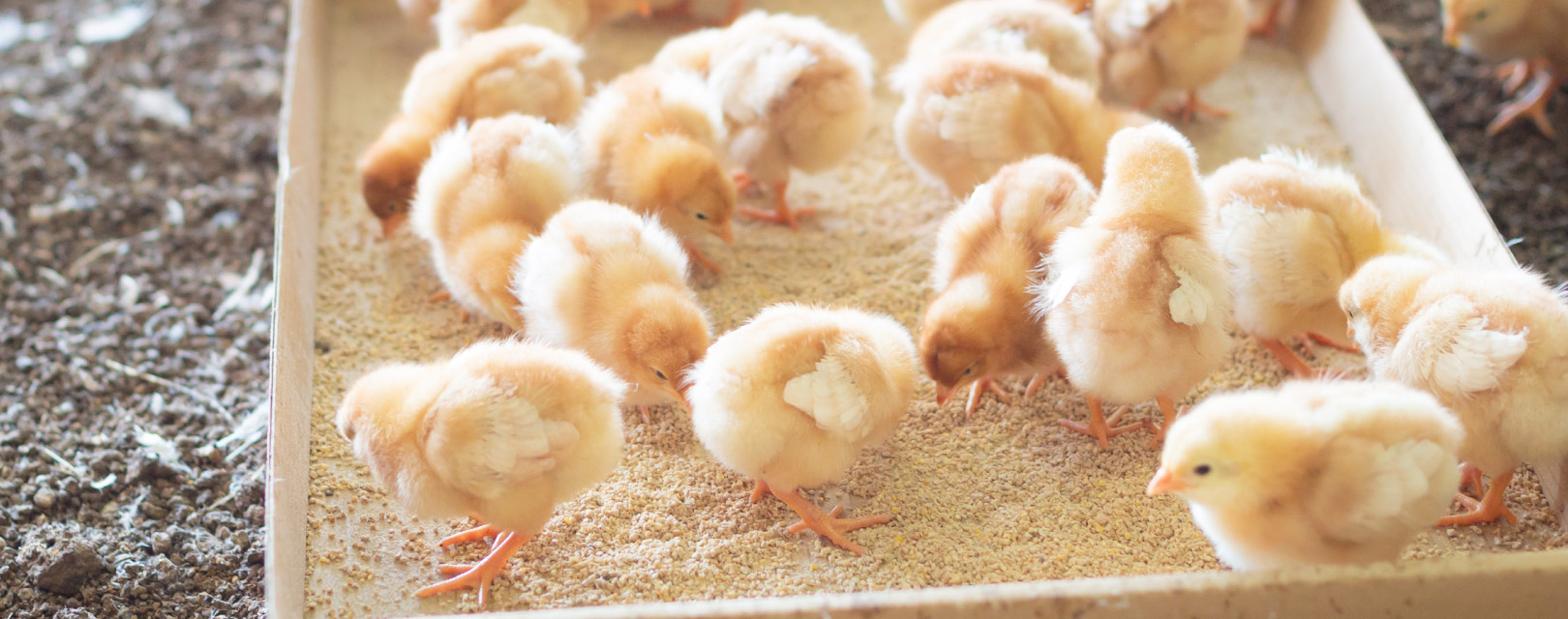
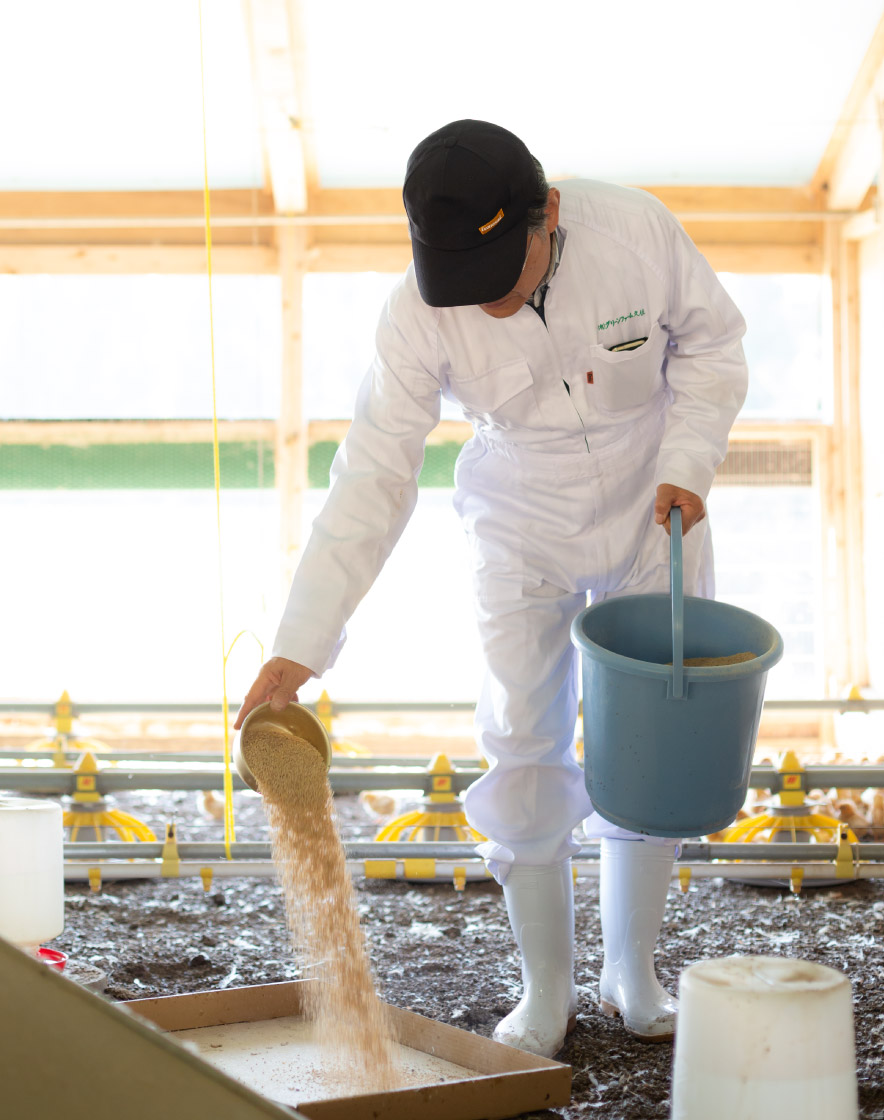
Rearing our Hens from Day-Old Chicks
From 60-years of experience, we have learned that the first 7 days after the chicks hatch decides their lifetime health and the results of the egg-laying period. That’s why we don’t just buy hens raised in other brooding farms but rear them ourselves from day-old chicks. We adjust the temperature, humidity and the amount of feed, also tracking their health condition several times a day.
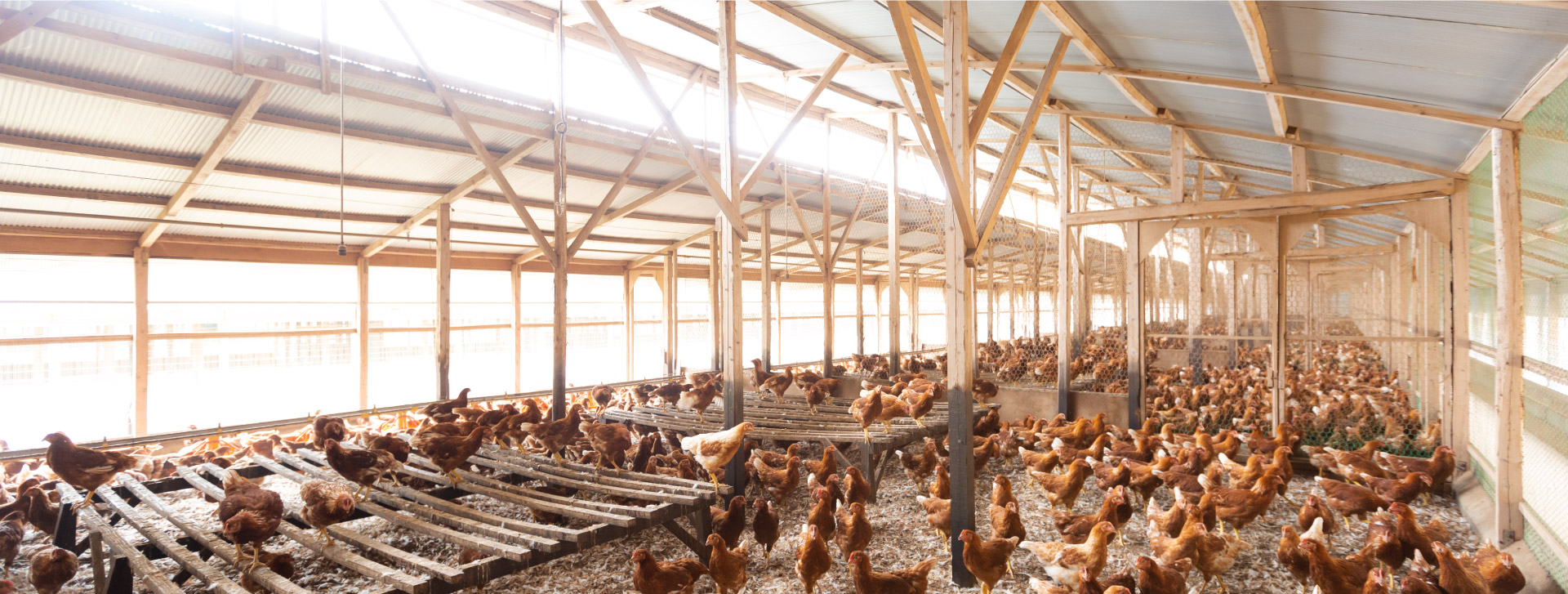
Never Caged in their Lifetime
We prepared 3 types of cage-free houses for different rearing periods, from day-old chicks to hens in their egg-laying period. We have implemented the cage-free rearing practice since our foundation in 1964, so as not to suppress the birds’ natural behavior but also in order to strengthen their body and immune system, which leads to less usage of medicines and other chemicals.
*For specific products some birds are switched to a cage-system house from their egg-laying period.
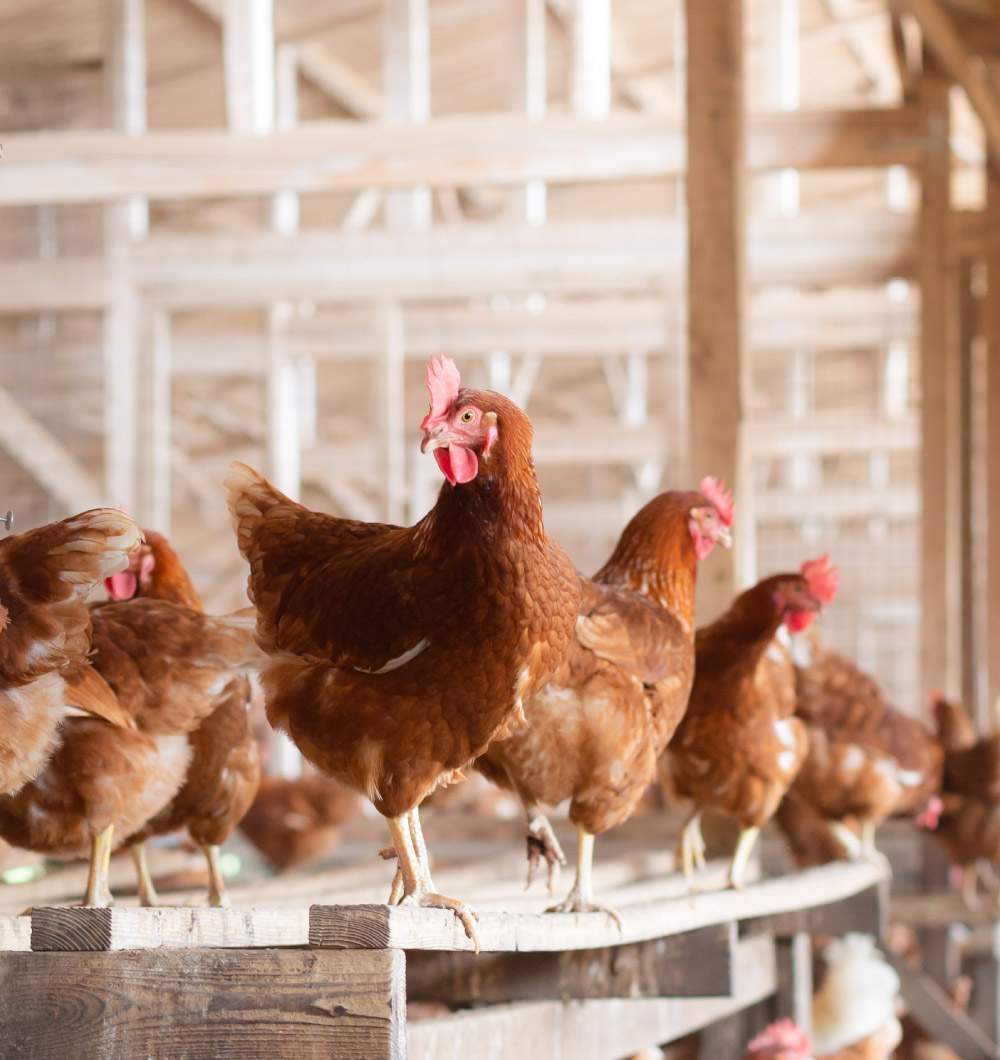
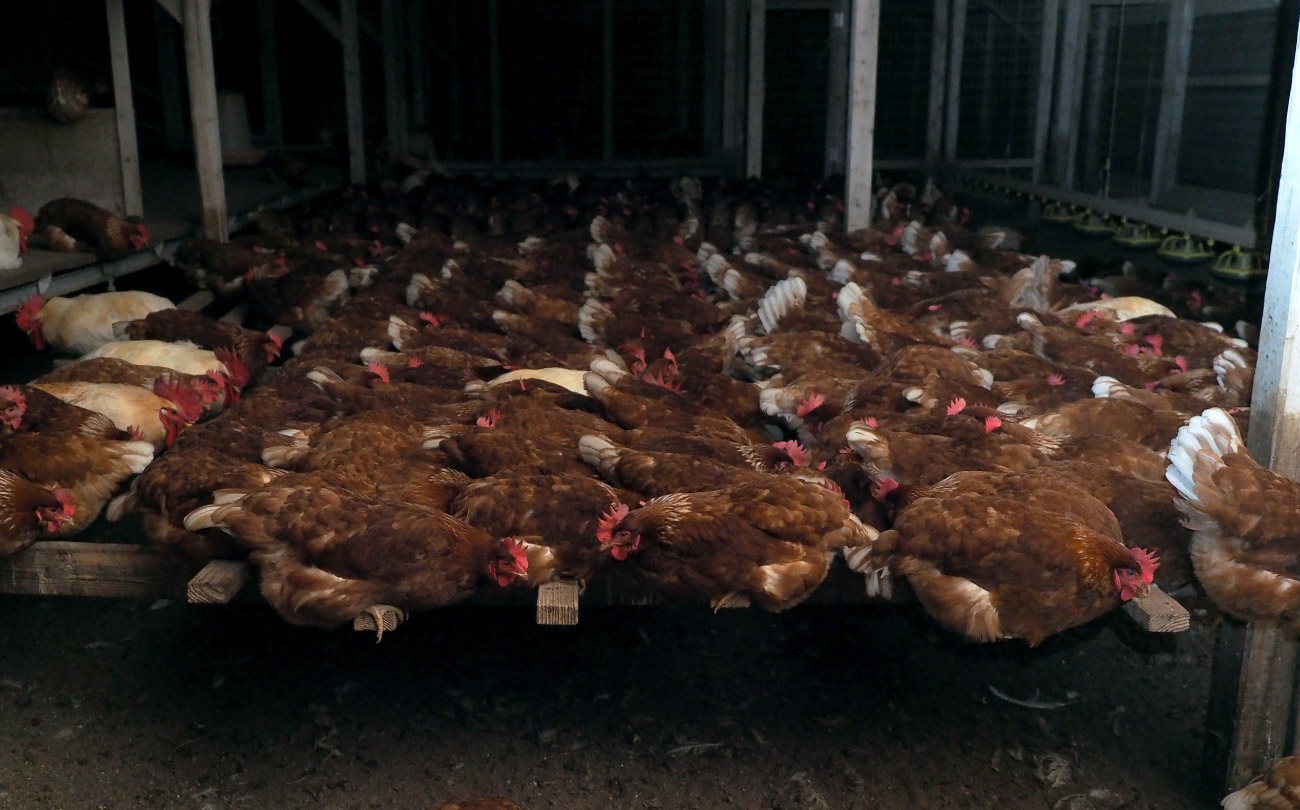
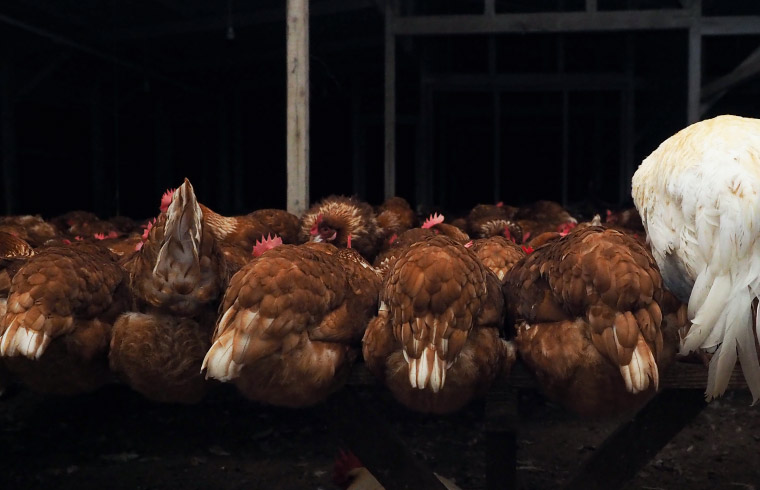
Hens Disciplined to Sleep on Perch
Hens love warm places and roosting together at night. For their comfortable rest and health, we provide a special perch, large enough to accommodate every bird. They would otherwise sleep on the ground and get sick from sweating or even die of suffocation as a result of too many of them gathering together in one place.
We train hens for 1 month to sleep appropriately on the perch, starting from when they are 7 days old. Gradually they come to roost by themselves when the sun goes down.
Commitment to Safe Food
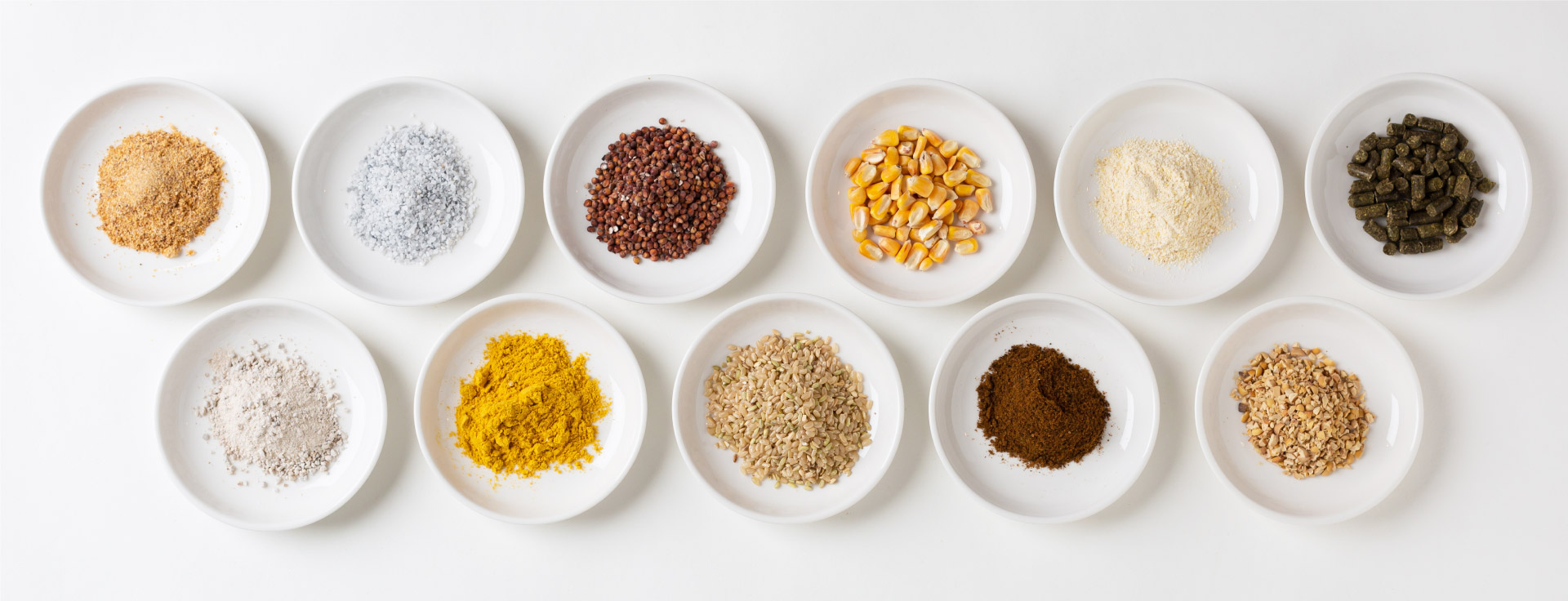
Use Only Feed We Trust
We proudly feed hens Non-GMO grain, Non-Post-Harvest Pesticide (PHF) corn, and locally produced rice feed.
*Some exceptions may apply before the egg-laying period.
Our feed also does not contain antibiotics or synthetic hormones.
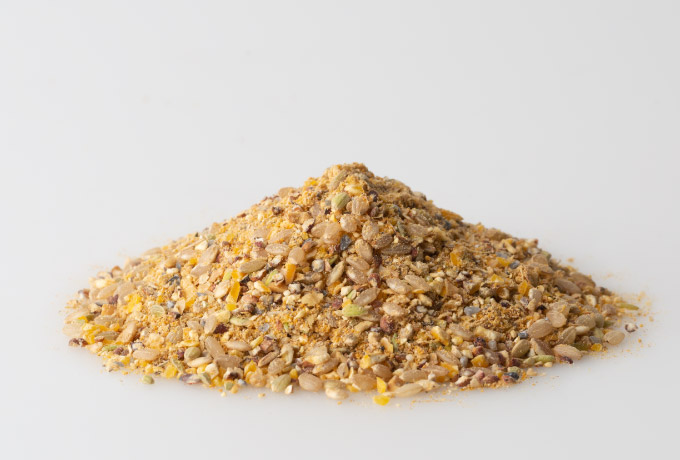
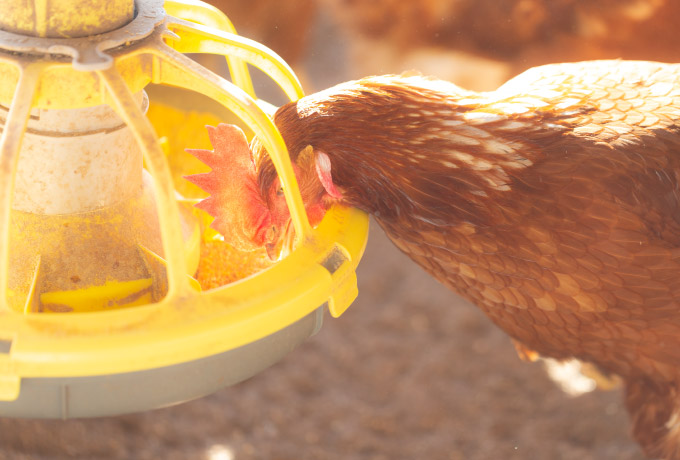
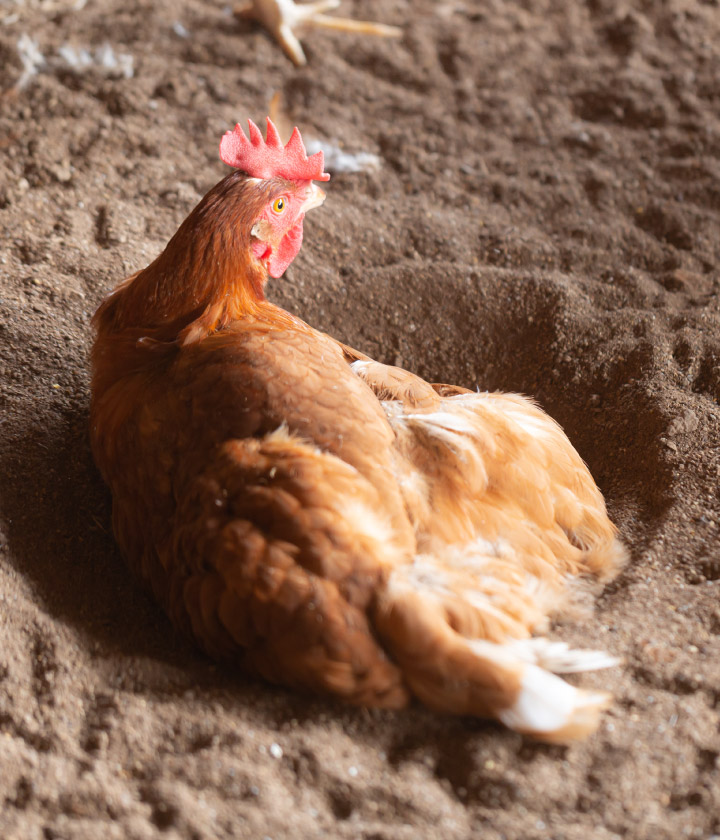
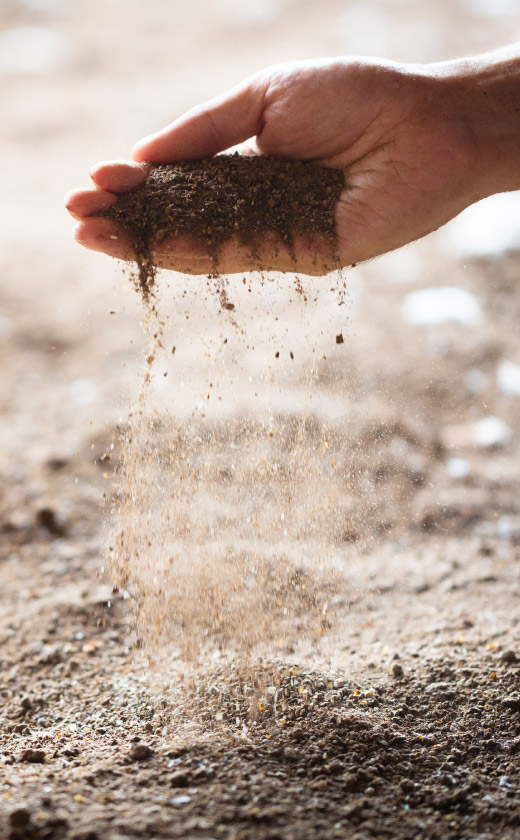
Hen-friendly and Environmentally-friendly Floor
Fermented manure covers the floor of all our cage-free houses. Manure, excreted by hens, is dissolved and fermented by the same mechanism by which nature dissolves organic substances. Pecking the fermented manure improves the hens' gut bacteria, just as eating yogurt does for us. This system doesn’t require electricity or even human labor because the hens naturally stir up the manure themselves.
Pure Groundwater
We supply groundwater, drawn up directly from 70 meters below, to every single chicken house.We also enhance the quality of the water by aerating it with natural rocks to add minerals and beneficial bacteria.
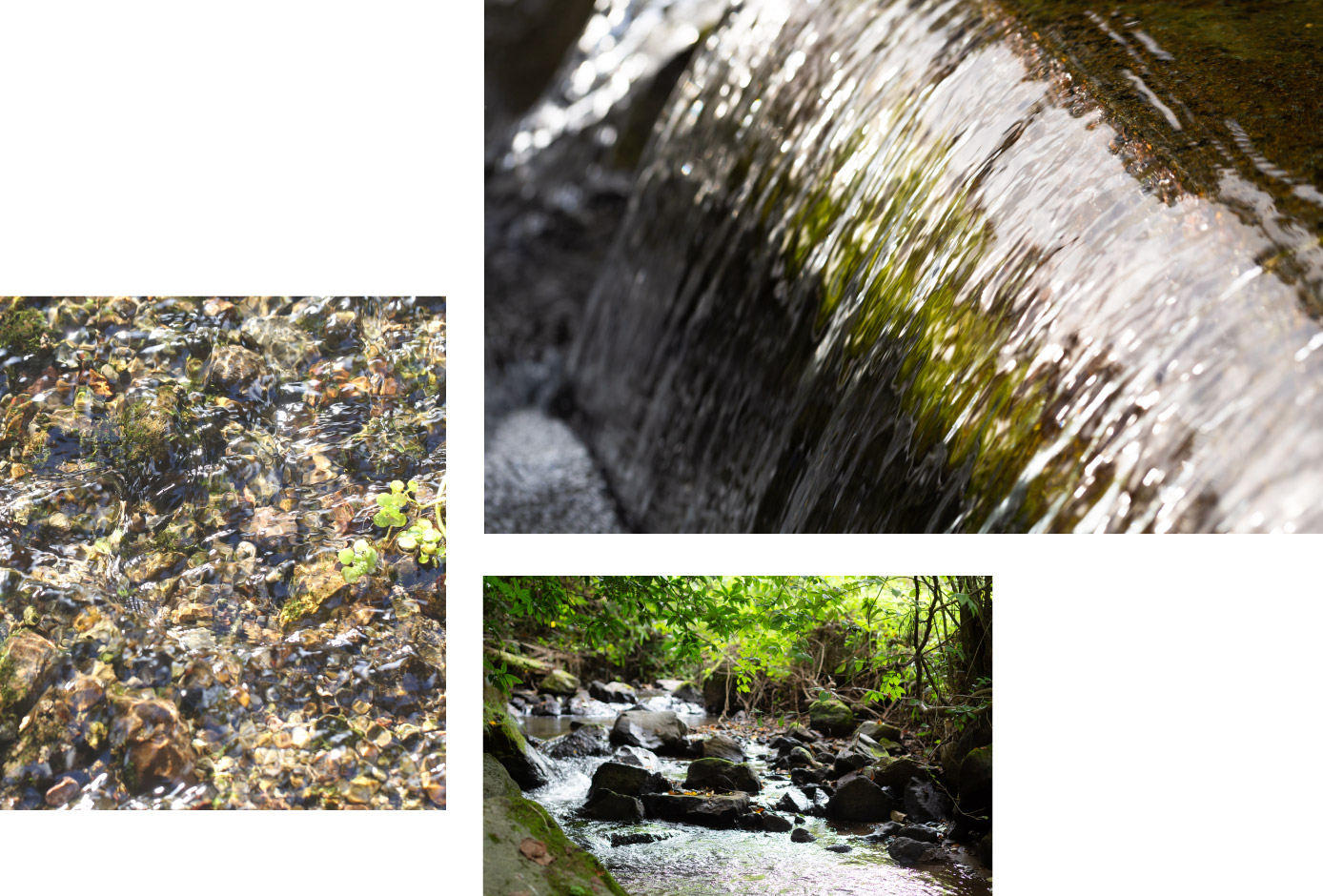
Commitment to Sustainability
Renewable Energy
By installing solar panels and contracting to a specific power supplier, more than 95% of the electricity we use on the farm is sourced from renewable energy.
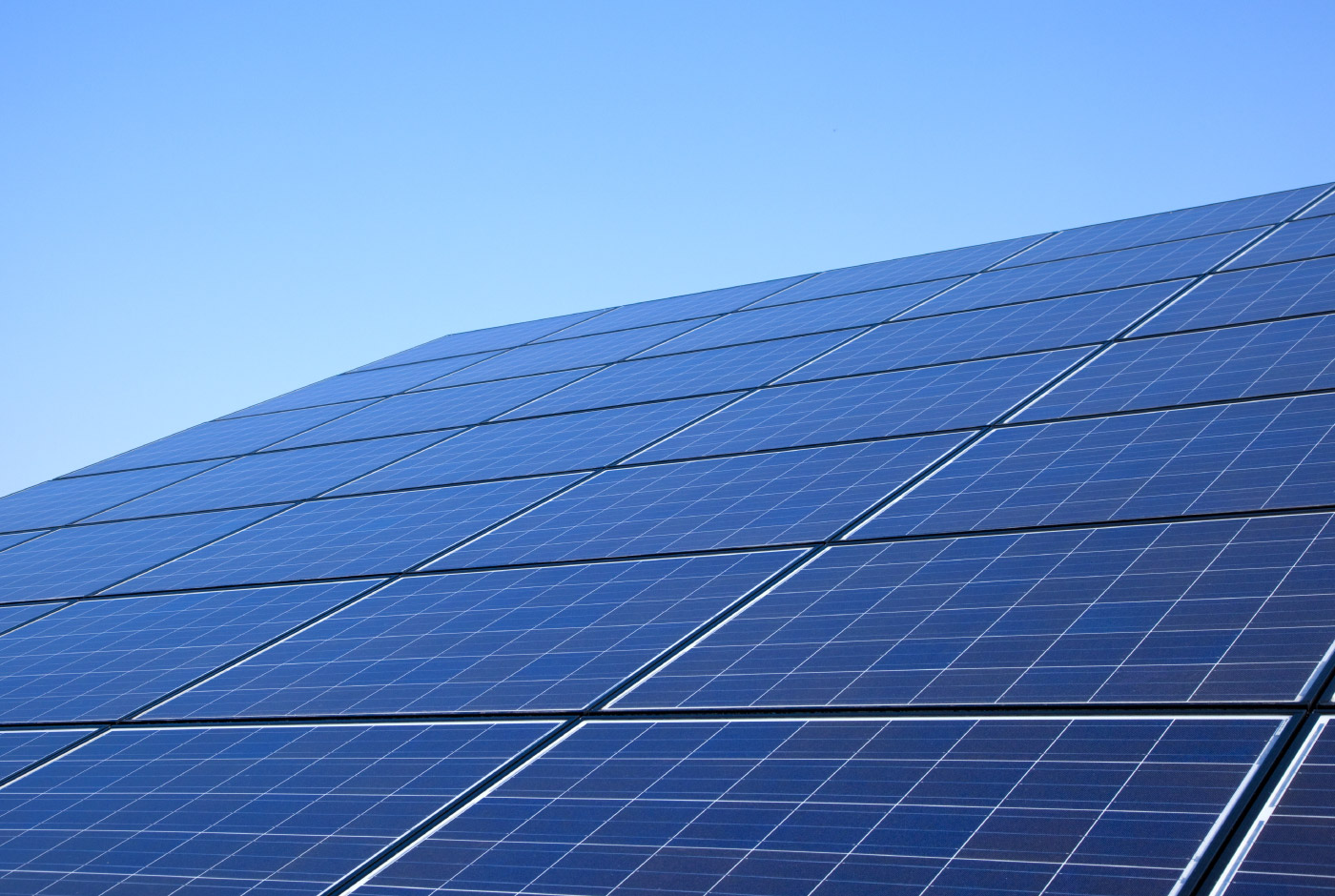
Locally Produced Feed. Benefit for Local Farmer and the Environment.
To reduce the carbon footprint of importing grains for feed, and to improve Japan's food self-sufficiency, we started to use the rice feed produced by 5 local rice farmers.
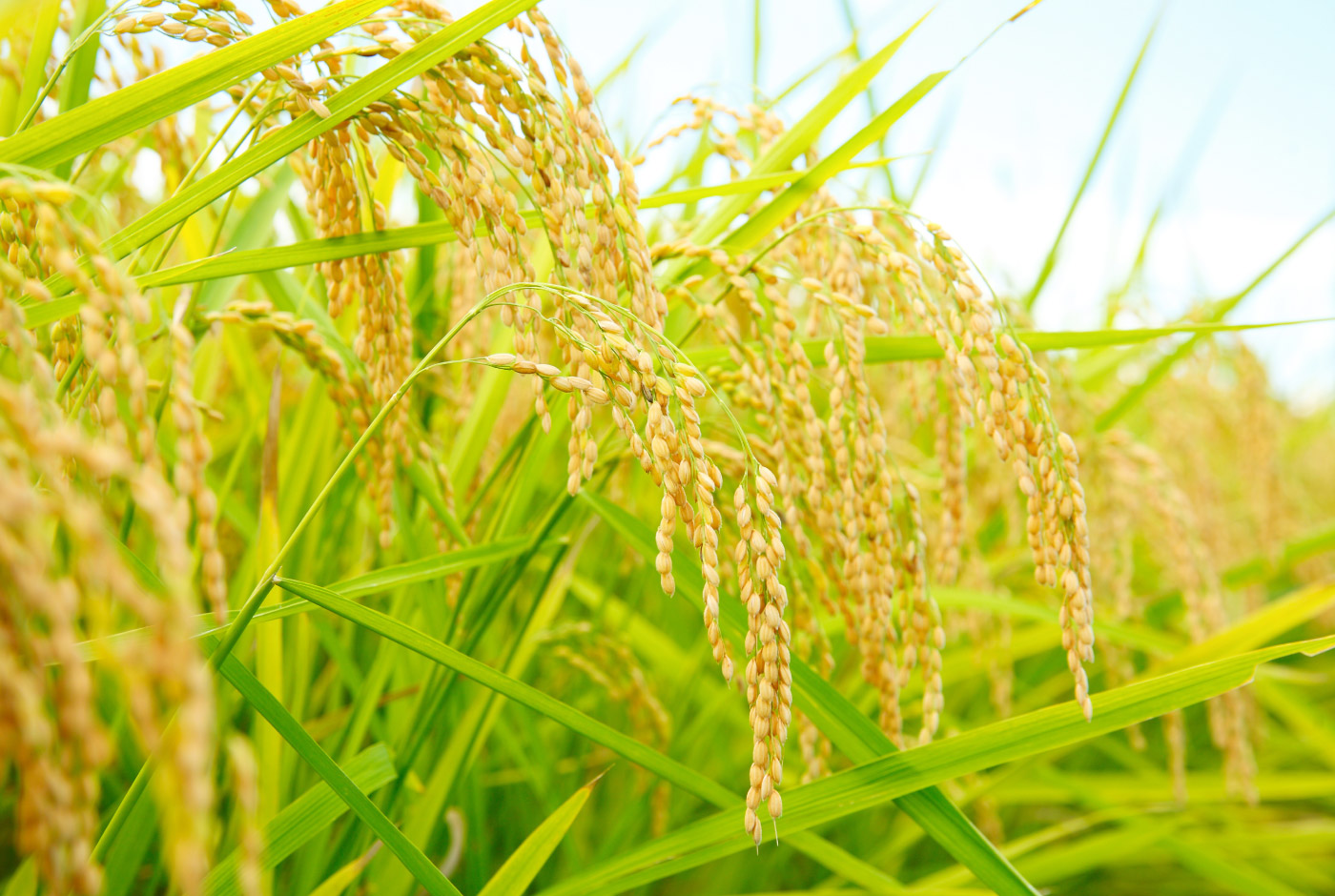
Herbicide-Free Farm
To avoid polluting the soil and the water and exposing animals, including human beings, we don’t use a herbicide. Any weeds overgrowing around the farm are not treated chemically but are mowed by human power.
